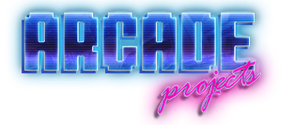I've got 2 System 32 main board and I have 1 ROM board that I converted to Golden Axe 2
On main board #1 the game plays and sounds perfect
if I swap that ROM board to main board #2 the audio is bad.
The problem is it sounds like the audio data is incorrect, so I get audio output but it's a bunch of beeps and buzzes (like an old school modem). I've heard this before with other boards while doing a conversion, usually if an audio ROM was programmed incorrectly, but I know the ROMs are good because it works on my other main board. (I have also dumped and verified the ROMs are good, just for good measure).
RAM/ROM test in test mode comes back with everything as GOOD.
These two boards were originally two halves of an Air Rescue setup and were supposedly in good working condition (indeed they're both very clean with no visible damage or rework anywhere on the PCB).
Any idea what to check?
On main board #1 the game plays and sounds perfect
if I swap that ROM board to main board #2 the audio is bad.
The problem is it sounds like the audio data is incorrect, so I get audio output but it's a bunch of beeps and buzzes (like an old school modem). I've heard this before with other boards while doing a conversion, usually if an audio ROM was programmed incorrectly, but I know the ROMs are good because it works on my other main board. (I have also dumped and verified the ROMs are good, just for good measure).
RAM/ROM test in test mode comes back with everything as GOOD.
These two boards were originally two halves of an Air Rescue setup and were supposedly in good working condition (indeed they're both very clean with no visible damage or rework anywhere on the PCB).
Any idea what to check?




